Don’t Judge a Book(shop) by its Cover
Browsers Bookshop’s history of overcoming challenges as a small business owned by women.
Story by Emily Feek
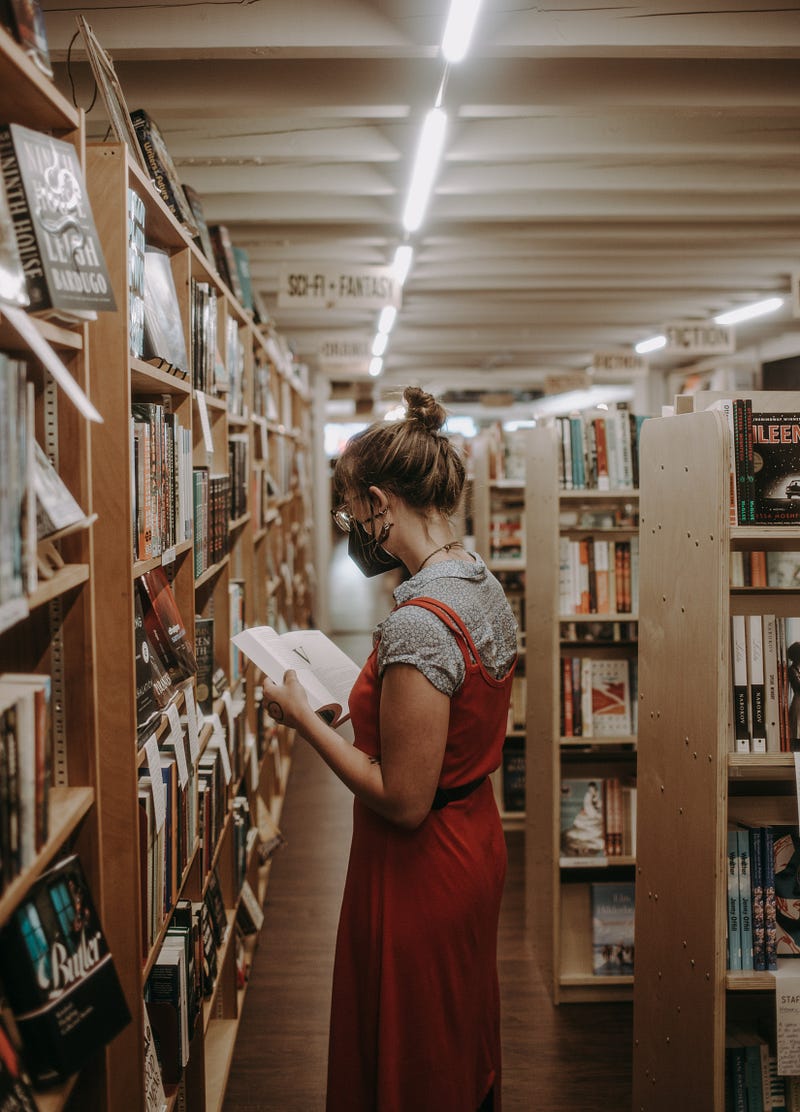
Browsers, on its surface, is a cozy local bookshop located in downtown Olympia, Washington. The clean logo, signage and eye-catching window displays draw you in, and upon entering, you’ll see the shelf of staff recommendations on your left. At the front of the store, there are tables with tidy stacks of new fiction releases, some accompanied with handwritten staff pick tags.
Quiet instrumental music hums through the speakers, but you’re more likely to notice the chatter between shop owner Andrea Griffith and regular customers or employees. When the shop’s UPS route driver stops by a few minutes after 11 a.m., Griffith strikes up a conversation with them about the 33 packages they delivered that morning. During the winter holiday season, the driver recalls that they would only deliver 20 to 25 boxes a day.
Griffith unpacks a small mountain of boxes containing new books and greeting cards. She is occasionally interrupted by customers picking up purchases and pre-orders of John Green’s latest novel. She gushes about the new greeting cards she received and shows off new informational posters.
Customers may know Browsers as an independent bookshop with a friendly staff and books of all genres. What they may not know is the 86 years of history behind it.
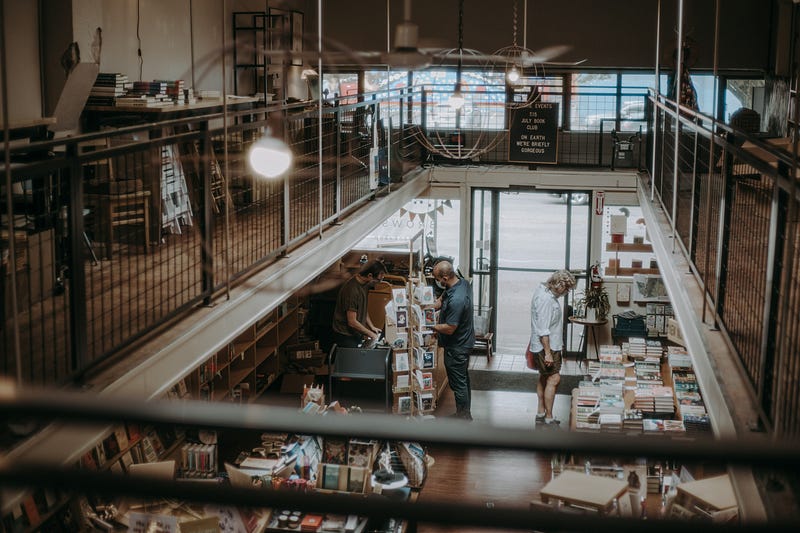
Anna Blom’s Book Shop
Browsers wasn’t always called Browsers. It began as Anna Blom’s Book Shop in Aberdeen, Washington. Anna Blom, the shop’s founder, was a Russian Jewish immigrant who came to the U.S. in 1907. She taught herself English by listening to classic literature and Shakespeare, according to an article from the Washington State Jewish Historical Society.
Blom opened the bookshop in the 1920s to support her and her children. She moved the shop to Olympia when the Great Depression hit, according to Jenifer Stewart, Browsers’ third owner. Blom’s granddaughter, Nicole Heath, inherited her love of literature from her grandmother, who she recalled as well-read and intelligent.
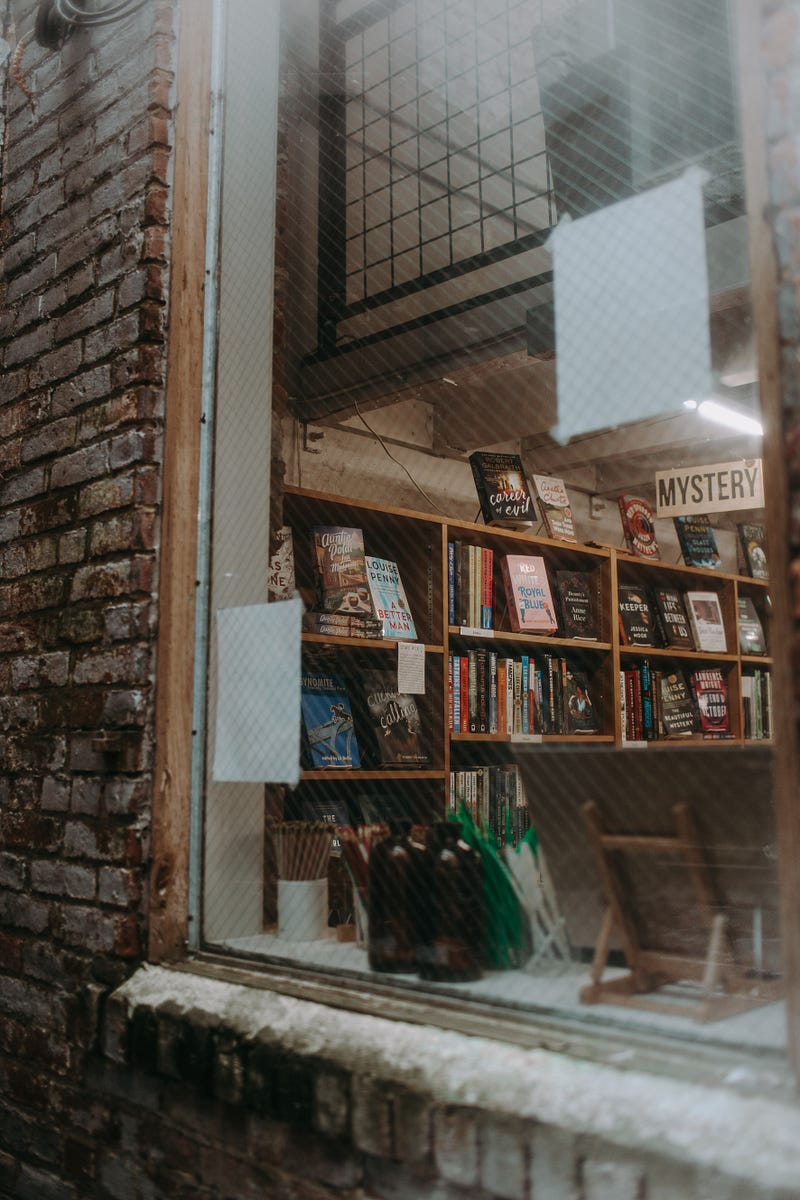
“My grandma really was an autodidact,” Heath said. “She was one of the best-read, most brilliant women I’ve ever met.”
Heath was raised in Seattle, Washington, the daughter of Blom’s son, Dan Blom. Although he graduated from Harvard University and worked as a lawyer, Heath said they spent many weekends in Olympia visiting and helping at the bookshop. She and her father would decorate the windows for the holidays.
When they weren’t helping, Heath would sit in the corner and read comics, which she imagined her grandmother didn’t entirely approve of.
“I did turn out to be a voracious reader, so something worked there — some osmosis,” Heath said. “My early visits to her might have been nothing beyond ‘Archie’ and other comic books, but books have been one of the most important things in my life ever since I was a very young child.”
No one knows exactly why Blom decided to open a bookshop, but Heath’s educated guess was it had to do with her strong passion for books. Her second educated guess? A low barrier to entry and lack of market competition.
Anna Blom’s Book Shop was a one-woman show, Heath said. Even as Blom aged, she operated the bookshop on her own. She moved into the apartment complex across the street, where she lived when she sold the shop to its second owner, Ilene Yates.
“My grandma died at 89,” Heath said. “So she lived a long life, and she ran that bookstore virtually until the day she died.”
Becoming Browsers
Blom sold her bookshop to Yates in 1968 and renamed it Browsers. Then nestled on the corner of Legion Way and Washington Street, Yates moved the shop to its current location on Capitol Way in 1979.
Stewart began frequenting the shop with her daughters after moving to Olympia. Yates hired her to work part-time, 12 hours a week, in 1971. According to Stewart, working at Browsers didn’t feel like work. She loved being surrounded by books and interacting with customers, so when Yates decided to sell the shop in 1985, Stewart seized the opportunity.
In 1988, Stewart bought the building the bookshop was housed in. Her time at Browsers was defined by expansion and renovation. The building had a main room and an unused backroom, which she began utilizing as an office. She and her employees, her eldest daughter and a faithful customer she later hired, painted the walls and installed a new door following instructions from a carpentry book.
Stewart cared about Browsers’ atmosphere and wanted customers to feel welcomed. The skylight and potted plants lining the balcony were a start, but Stewart also wanted customers to be able to sit down and read comfortably.
“I wanted my shop to encourage people to stay,” Stewart said. “You have to sit down and start reading a book, or at least read it for five or 10 minutes, before you decide to buy it.”
A combination of reading alcoves and soft, relaxed classical music helped create the ambience Stewart envisioned. She meticulously arranged standing lamps, rugs and chairs to make suitable reading spots.
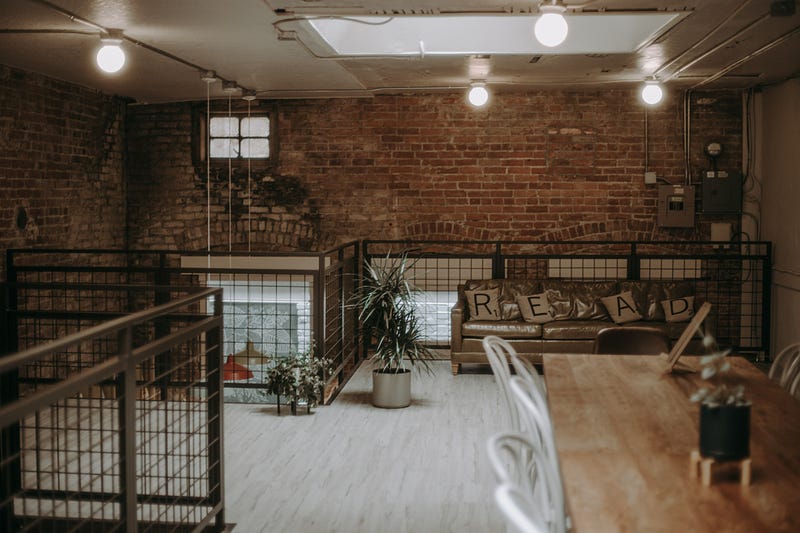
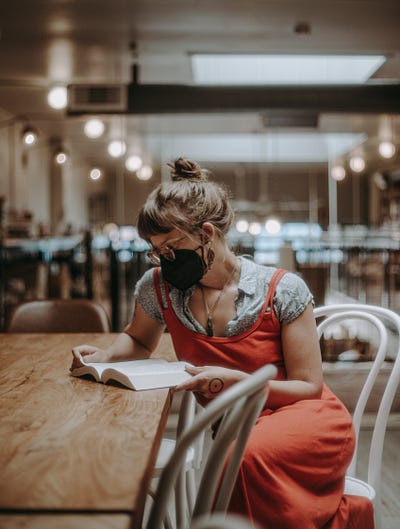
The books contributed to the atmosphere as much as the furniture. Because Browsers had limited shelf space and sold used books, Stewart developed systems for how to arrange books and how to buy them for the shop. She bought more paperbacks than hardcovers to maximize space.
Stewart had strict rules about which used books she would buy from estate sales and customers; she wouldn’t buy books that smelled musty or had any markings in them to maintain a high-quality inventory for customers. Only about one-third of the books she considered would be buyable, she said.
Although Stewart struggled to decide what her favorite part of running Browsers was, she said she loved working with her employees the most. Her first employee after buying the business was her eldest daughter. When the Great Recession hit, Stewart was able to keep most of her employees by taking a lower salary. It was hard to see her employees go, she said. It was also hard to find someone to take over the store.
A Modern Browser’s Browsers
Browsers changed ownership for the third time in 2014 when Griffith, a trained medical librarian, bought the shop. When she moved to Olympia with her husband, the only job available in her field was at Providence St. Peter Hospital, Griffith said. Although the job looked good on paper, she hated it.
Griffith had been a regular customer at Browsers when she and her husband were dating. Knowing that the owner, Stewart, was an older woman, Griffith decided to see if the shop was for sale while on a break at work.
“I think every big reader or librarian has it in the back of their head that it’d be fun to own a bookstore,” Griffith said. “Little do we know at that moment what we’re getting ourselves into.”
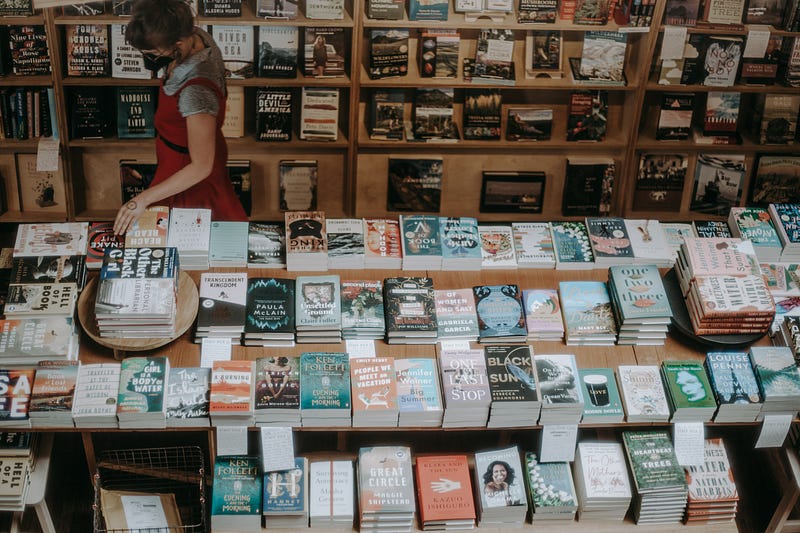
By 2014, independent bookshops like Browsers struggled to stay in business. Online retailers like Amazon gave customers a more convenient buying experience, impacting independent stores’ profits. In 2017, the New York Times reported that the fourth-largest book retailer, Book World, was closing after declining for years. Amazon inherited its position, having been the fifth-largest retailer.
When Griffith decided to buy the shop, it wasn’t because of its financial health. On a good day, the store would make $200.
“Every other accountant or businessperson who looked at the books was like, ‘Run away. Don’t walk, run. This is a money pit,’” Griffith said. But because Stewart owned the building and wouldn’t have to deal with rent increases, she found it a worthwhile investment.
Initially, the only thing that changed was ownership, Griffith said, but over time, she’s left her mark. Where Browsers once sold a majority of used books, Griffith estimated the inventory is now 80% new, 20% used.
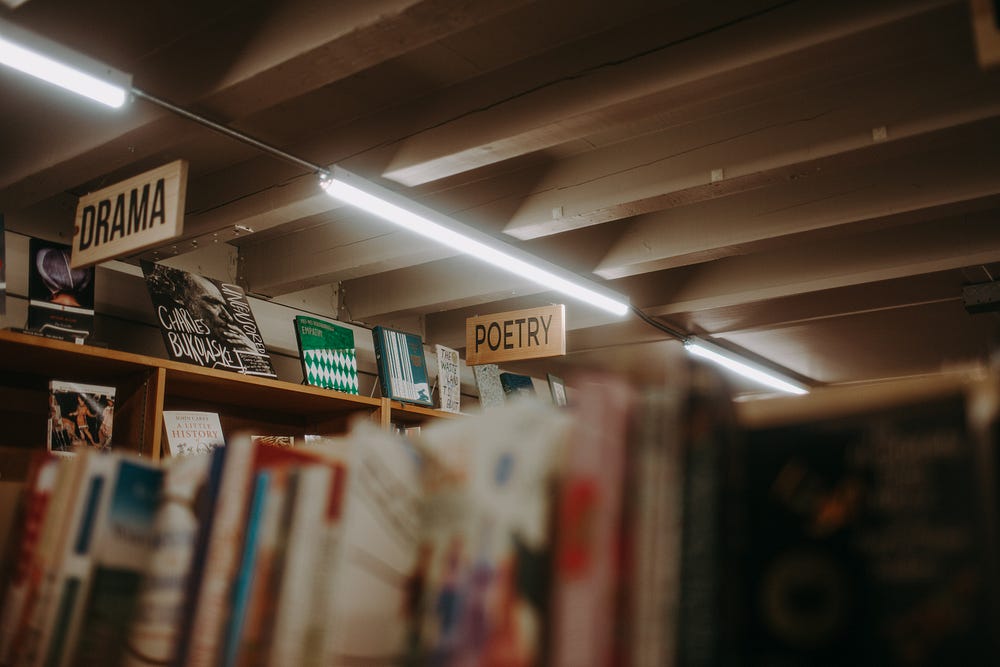
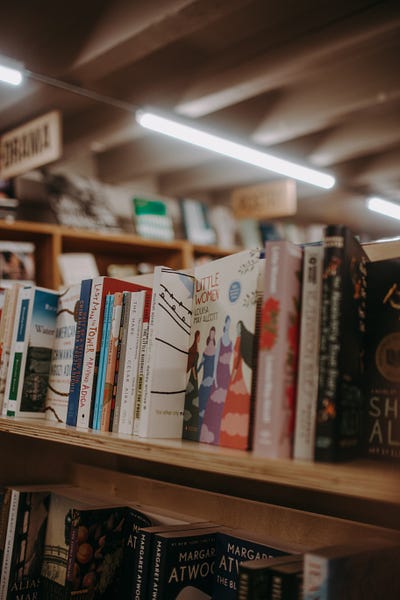
The space changed, too. A slew of home improvement-esque projects have made Browsers feel more modern. Work on the roof and back half of the shop allowed Griffith to use the upstairs area to host events. Prior to the COVID-19 pandemic, events were a significant part of Browsers’ presence in Olympia.
When the pandemic hit, Browsers faced the same issue many independent bookshops did: maintaining a strong online presence when the storefront closed. Their online ordering system was clunky and difficult to manage, so Griffith replaced it.
Since then, they’ve made over 1,000 home deliveries to customers.
“We never stopped,” Griffith said. “The store was doing well before the pandemic and was on a good trajectory, but the pandemic created some very loyal customers. When you drop off a bag of books at someone’s house and you’re the only person they’ve talked to over the fence for a couple weeks, we feel really supported.”
Community connection and a sense of place is how Browsers competes with online retailers like Amazon, Griffith said.
She’s looking forward to hosting more events as pandemic restrictions lift. Browsers continues to offer a virtual book club with monthly books Griffith handpicks. Other events, like cookbook club, where everyone brings a dish from the same cookbook, aren’t the same over Zoom.
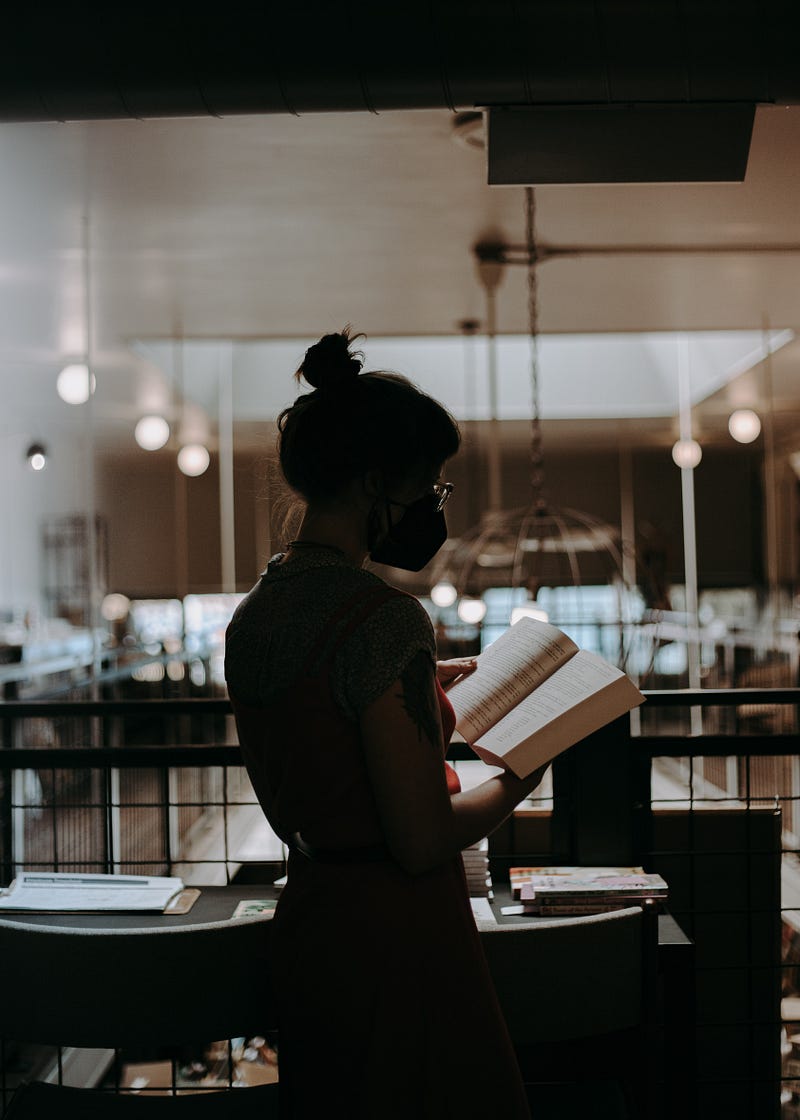
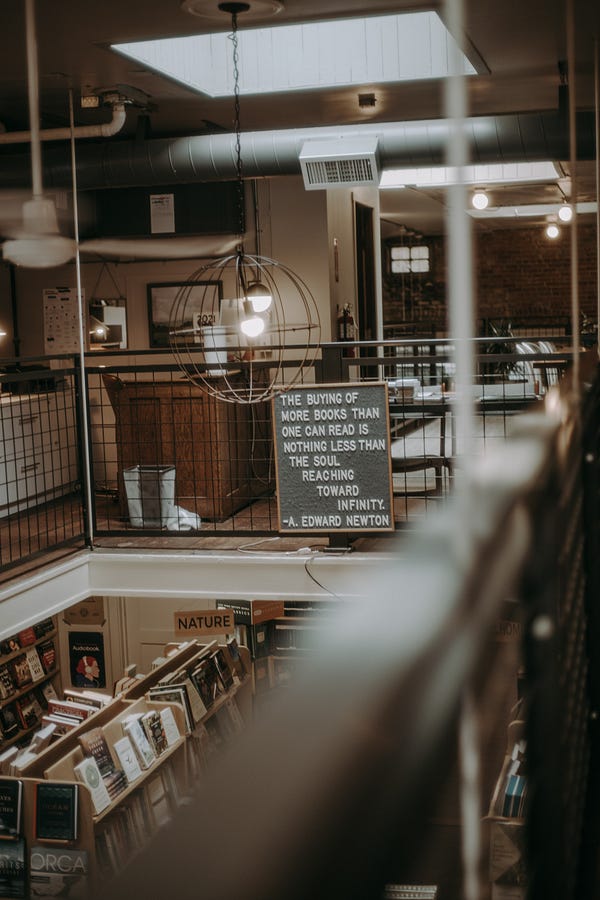
If you ask Griffith, the community is what makes Browsers magical. There are parts of the store — like the monthly and yearly bestselling books — that reflect Olympia’s culture. It’s the Olympia community that shapes what books Griffith stocks and prioritizes. The culture section is one of those areas where readers have made an impact; Griffith chooses books that align with community values.
“Last year, during a lot of the protests around George Floyd and the Black Lives Matter movement, it was really cool to see Olympia buying all of these titles to educate themselves,” Griffith said. “And it was very gratifying to be the bookseller for that moment.”

Among 2020’s top-selling books at Browsers were five titles about race, including Ijeoma Oluo’s “So You Want to Talk About Race” and Ibram X. Kendi’s “How to Be an Antiracist.”
With Browsers’ doors open to the public again, Griffith said she’s excited to spend more time in the store and interact with customers. Griffith is never short on books to recommend, and the physical evidence is scattered around the store on staff recommendation tags. Nearly every shelf has a staff pick or five, proof of both Griffith’s and her employees’ love of reading. She loves poring over upcoming books in advance so she can have a review ready before they hit the shelves.
“This is a sexy part of owning a small business, and there’s not a lot of these sexy parts,” Griffith said. “We get advanced reading copies of books coming out in the upcoming seasons. The publishers will print these kinds of crappy paperbacks, sometimes with the original cover art, and we get to read the book in advance.”
Browsers’ advanced reading copies have a dedicated shelf upstairs, so there’s no shortage of upcoming releases for staff to read. In April, Griffith was reading an advanced copy of Maggie Shipstead’s novel “Great Circle.” She looked forward to recommending the book to customers on publication day in May.
Recommendations provide ways to connect with booksellers in a way online retailers can’t replicate; the experience of browsing books and getting recommendations is unique to physical stores.
This is one of the reasons Oren Teicher of the American Booksellers Association attributed to independent bookstore growth in 2013, alongside opportunities for community gatherings.
Though the pandemic isn’t over yet, Griffith is planning for the future — she’s already ordering books for the fall sales season and intends to add more shelves and inventory upstairs. Browsers hasn’t just survived the pandemic; its flourished despite it.
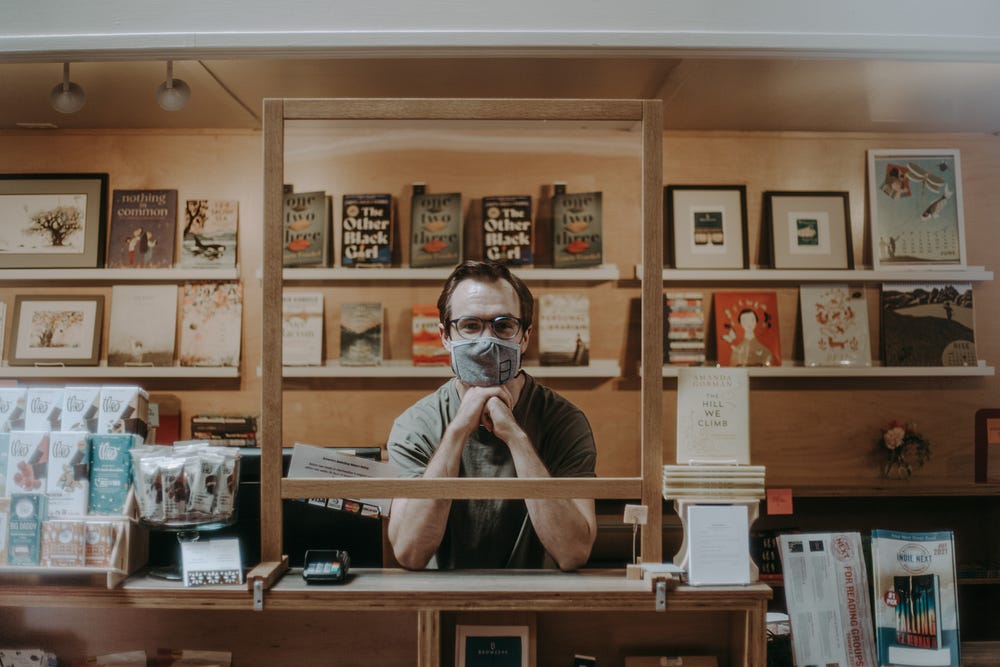
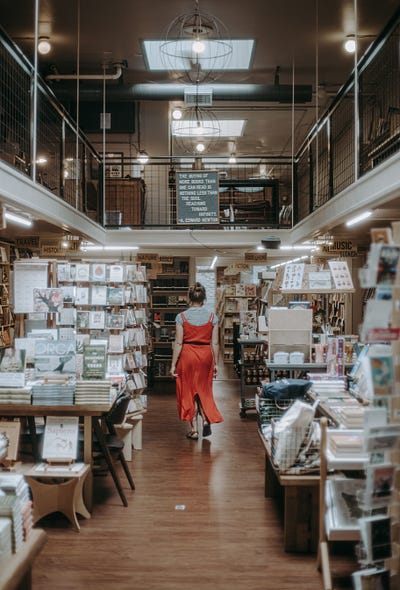
“I have to say, I think Andrea’s done an extraordinary job,” Heath said, adding, “She has great recommendations. She’s everything you’d expect a bookseller to be. Intelligent, well-read, very broad — she’s a real omnivore when it comes to her reading.”
From Blom to Griffith, Browsers has always been more than just a place to buy books. It’s been a collection of memories, experiences and knowledge run by women with a few things in common: a love of books, a care for the community and an insatiable appetite for reading.
